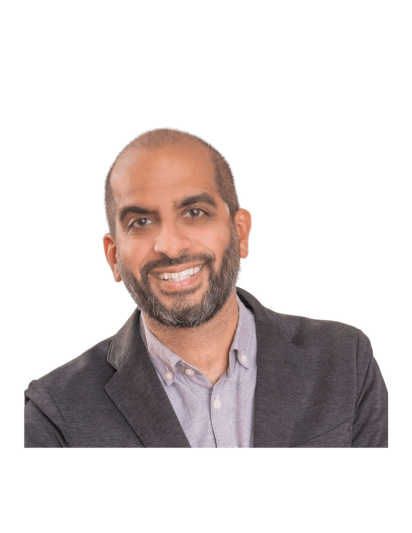
168

Episode 168 45 min
Implementing the Icelandic Workweek: A New Approach to Flexibility and Freedom
Ali Asaria, CEO of Tulip

00:00
00:00


Implement management lightly so it can back out of the way when people are at their best.
In this episode
Most managers focus on avoiding bad things when they should be focusing on creating good things.
In this episode, Ali Asaria discusses the importance of having the hard conversations that eliminate poor alignment, and how to ensure employees remain motivated by a sense of creativity and autonomy.
Ali Asaria is a Canadian technology entrepreneur who has founded several companies including Well.ca and his latest venture, Tulip, an enterprise retail technology company. He is also the original creator of the most popular BlackBerry game, BrickBreaker. Ali has many years of experience leading teams of over 200 people.
In episode #168, Ali explains how important it is to experiment with your team’s leadership and management practices. He also shares how this experimentation can help you discover things within each team that help the entire company succeed.
Tune in to hear all about Ali’s leadership journey and the lessons learned along the way!
Like this episode? Be sure to leave a ⭐️⭐️⭐️⭐️⭐️ review and share the podcast with your colleagues.
04:50
There’s no secret formula
09:53
Implement management lightly
15:00
Icelandic workweek
25:00
Discovering the lack of trust
34:40
Getting your team aligned
39:23
Using AI to solve problems
Resources mentioned in this episode:
- Connect with Ali on LinkedIn
- Download Fellow’s meeting cost calculator
- Read The Five Dysfunctions of a Team by Patrick Lencioni
- Read Crucial Conversations by Kerry Patterson, Joseph Grenny, Ron McMillan, and Al Switzler
- Subscribe to the Raw Signal Group Newsletter
- Subscribe to the Supermanagers TLDR newsletter
Transcript
Ali, welcome to the show.
Ali Asaria (Tulip) 03:48
Thank you, I’m so happy to be here.
Aydin Mirzaee (Fellow.app) 03:50
Super excited to do this. There’s a lot of topics that we’re gonna chat about, you’ve had a pretty extensive leadership career have spent a lot of time in startups, but you’ve worked at big companies as well. Famously, you’re a founder of well.ca. Very, very successful company. And today, you’re the CEO of tulip, also a very successful company in the enterprise retail technology space. But before we dive in, and I started to ask you about all sorts of experiences that you’ve had building these companies, can we start in the beginning and start by talking about mistakes and curious to see if you remember any of those early mistakes that you used to make when you first started to manage or lead a team.
Ali Asaria (Tulip) 04:32
I had a background where I’m a computer engineer by training, I’d never done any formal management training when I started a company. And so I you know, I started building out software for my first company while.ca. And the team started growing. And you quickly realized, wait a second, a lot of the processes were that worked when you were a small team. They completely break down once you’re at like 1012 13 people. And so I still remember that feeling of like the first time I noticed that there’s a whole bunch of people working here but we’re not alone. And then we’re not actually working on the right things, but I can’t control it anymore. And so I quickly learned I had to figure out how to manage or the team wouldn’t be successful. And I think the biggest mistake I made then was that time was really the height, if you remember, it was like, the time was really the height of when Scrum and Agile was super popular, right. And so I remember at that time, feeling like there was some secret formula, we just had to implement this without methodology, and everything is going to be perfect. And so the biggest thing I really made, was thinking that there was some sort of magic formula to getting a large team aligned and working together. And a lot of my career has been figuring out that it’s like, there’s a whole bunch of hard work in detail. And there’s no secret like, you know, webpage or blog that you read that’s going to solve
Aydin Mirzaee (Fellow.app) 05:38
that. How did you come to realize that, so I remember
Ali Asaria (Tulip) 05:41
doing all these things, right. So like, in my new company, we raise money from the same funders that built out OKRs, right, like the concept of OKRs. It throughout my career, I kept reading these books and being like, Oh, this is the problem, you pulled your team together, you buy the book for them all. But this is what we’re gonna do with Scrum. I remember, all of a sudden, we have these boards up, but we have these new titles like this, you know, Scrum Masters, in addition, you’re just buying into the methodology. And in the beginning feels right, like, Hey, this is working, or this is like, all of a sudden, very different. And the big thing that you start finding, I think a lot of I think you might have experiences too, in the past is, after a couple of months is the the new effect of the new methodology wears off. And all of a sudden, you realize, actually, we’re sort of back to where we started. And that’s when I started realizing that I had to dig a little deeper, if that makes sense, right?
Aydin Mirzaee (Fellow.app) 06:27
A fun fact about you is that used to work at Blackberry. And there’s this really cool new movie detailing Blackberry, for those who who haven’t seen it yet. But you worked on the original brick breaker game for them. And so having seen what you have Blackberry, and now to startups in advising many other startups, what are some of the takeaways and learnings that you had while working at Blackberry?
Ali Asaria (Tulip) 06:53
Yeah, so there’s a whole bunch of cool stories and a very cool story about like how brick breaker came about. I remember, like literally being 20 years old, I was an intern at room at the time. And part of my job was answering phone calls for people downloading the SDK for Blackboard. And so one of the assignments my manager gave us always try to build a demo app, so that you can learn the SDK when people ask questions. And so I wanted to build a game because I was young, right. And when the people’s first saw the game management, actually at Blackberry said, Whatever you do, this can never go out to public, because this needs to be seen as a business device, not a computing device, which is kind of like very different time, right. And so it had to stay within the walls of blackberry. That was the rule. But all of a sudden, it started taking on a life of its own. Like, I remember that everyone in the company was playing it, I knew the CEOs email because he kept asking me for the new version, that I had to email it to celebrities, like famous Hollywood celebrities, because they saw it on someone’s Blackberry, there was a GQ article about how Obama was addicted to the game, it was like a huge honor. And so it was fun. But one of the biggest things I learned and I have trouble actually, like explaining it verbally, but I actually remember the feeling of building brick breaker, like I was actually building it and getting addicted to the idea of like, when I had this feature, and I was staying up at night, because it just needed to like finish that code. And I realized that a lot of times, we can talk about software management, software methodology more. But a lot of the analogies we use are kind of like piloting the ship together, where you’re thinking about like the team together and the relationship the individual contributors have with the rest of their team. And then there’s a relationship we all have with the customers and the feedback you’re getting from the market as you steer the ship. But one thing I learned from building brick breaker, which often is forgotten, and that is the relationship of the Creator with the thing that you’re building. If you’re building a craft, you’re kind of like tooling with it, and you’re pushing, and then the medium kind of pushes back. And the reason I bring that up is because every time I’ve built out teams in software, I start to realize that if I want other people to have that feeling you have when you’re building something awesome, a lot of the software methodology and the most modern methodology we have, I feel like they suck the spirit out of that part of development, the part where you’re like, I love this thing so much, I can’t stop working on it. And we build all these processes, and it breaks that awesome feeling, which I think is what makes people do their best. And so I still to this day, remember those feelings I had building something on my own that 10s of millions or hundreds of millions of people were using. And I tried to build out processes at my current companies where you still get to capture some of that, because it’s it’s the best part of building software
Aydin Mirzaee (Fellow.app) 09:22
for people to get that kind of a feeling. While building things. I think those are the things that allow for excellence to just appear in the work because there’s just like a different level of passionate and love that’s put into building. I am curious. So what have you done at tulip to get people to get to those feelings more often?
Ali Asaria (Tulip) 09:43
Actually, it’s complicated because I I think it’s kind of contrary to the spirit of your actual podcast, which is I believe that management is a necessary evil. So I actually think management is kind of wrong, in a sense, and you only have to do it because a large group of people can’t work efficient Only together. And so you have to add this thing, which sort of by itself, you wouldn’t want if you had the choice. And the reason I believe that is because when I built software at my best, I didn’t use the methodologies that we all implement in the companies like it’s, there’s a deep irony, right, this contradiction. And so I guess the biggest thing I get it as is like, I don’t think you can actually solve that I don’t think there’s a new technique to just make people have the freedom and creativity they would have when they’re at their best in a large team. So the way I think you implement this is you implement management lightly, so that it can back out of the way when people are at their best, if that makes sense. I love it. So
Aydin Mirzaee (Fellow.app) 10:34
let’s talk about that implementing management likely. And by the way, there’s a Supermanagers podcast, but I think everything has a time and a place. And everything has a scale at which it needs to be applied. And it’s a pendulum, right makes more sense in some places, and less than other places. And at the end of the day, we’re all learning how to build better companies. And if we can do that more efficiently, by using less people, or lighter methodologies, or whatever it is, like, this is a constant learning process in this building companies. But yeah, tell me about the management light approach, what it what does that look like?
Ali Asaria (Tulip) 11:09
So, you know, we try to capture values to it, right? Like, what are the values of the company and our first value, if you look at our list is this phrase, its work as craft or work is craft, right? And so it tries to capture the spirit that the ideal workplace you’d want to be in is doing things that you would do even if you weren’t getting paid. And so we want to find a way to unlock that for everybody, if there’s that possibility. And that’s not just in software, right, that’s across all departments. And so first, I think it’s important for management to capture the spirit and to reflect the spirit back to the team, that the work that you do, we want you to actually love, and we want you to unlock those feelings in that ethos of doing things that you’re the best at, in a way that doesn’t feel like just a job, you know, in the most general way. So I think first, it’s that saying, we we value this feeling, we want you to have that, right. But I think the big thing that we try to do a tool, but it’s not as super formal thing. But it’s really that we have management that know how to witness when people are working at their best, and then pull back and actually give them the creativity and liberty and freedom to kind of continue doing that. And that the main way to do that is basically having good leadership that recognizes that talent, and then knows to pull back on the methodology, if necessary,
Aydin Mirzaee (Fellow.app) 12:19
is the example at brick breaker working on that and Blackberry. That was I guess, management could have gotten in the way and said, Hey, what are you doing? This is this is not supposed to be a fun device that could have stopped that in its tracks.
Ali Asaria (Tulip) 12:33
Yeah. And look, I mean, I don’t mean to imply that brick breaker was like this big thing for Blackberry. But it was on like, hundreds of millions of devices. And it wasn’t part of my job. And so you got to kind of think like, at the current company, I’m trying to lead, how do I make sure that the next developer that’s trying to build the next thing that isn’t part of their job, but could be very impactful? That that actually happens? And we you know, we can enable that kind of spirit, right?
Aydin Mirzaee (Fellow.app) 12:55
The key part of that sentence was, and it wasn’t part of my job, which I think really drives the point home. Okay, so it’s a value in the company should because it’s a value, I assume that when you hire people, it’s a thing that you consider, how do you look for that, in the hiring process?
Ali Asaria (Tulip) 13:12
When we’re in this space, I think we talk a lot about, you know, you want to not just interview people and see if they can ask you to like answer the questions back to them. But you want to see the work that they’ve done in the past, you want to, you know, as you’re talking to them, see if they have that spirit of passion for the field and actually want to want to contribute. And so we look for all those things. But again, I know I’m returning back to this, I don’t think there’s a magic bullet, like a lot of the best talent, we’ve seen it, the current company I’m at and the last company I was at, you hire great people that you really like and then all of a sudden, like things develop and people that you weren’t expecting, end up being some of your best contributors. And, and I think it’s really just this idea of like the spirit of, hey, let’s try and let’s give you the feedback to nudge you in the right direction. But in the end, it’s our job as leadership, to unlock that feeling from everybody if they’re working at their best and have have a job that they would love to do, even if
Aydin Mirzaee (Fellow.app) 14:01
they weren’t getting paid, right. Yeah. And so we’re talking about software, but I assume this applies to sales and marketing and all the other disciplines.
Ali Asaria (Tulip) 14:10
It’s funny, right? Because I come from the software perspective. So when I’m speaking to the company, I often have like a softer idea in my head when we’re when we’re driving new values. And so I’ve had these awesome conversations in tulip where accountants came back to me or marketers came back to me and told me about how they saw their job is craft. And it’s made me appreciate all these disciplines that I haven’t really understood in the past.
Aydin Mirzaee (Fellow.app) 14:30
Let’s talk about culture. I mean, you’re a software engineer by trade, built multiple companies. And it seems like you like this idea of experimentation. And so one of the things that I know that you have recently experimented with at your company is the Icelandic workweek. So maybe we can start with what is that? How did it get on your radar? And we’d love for you to just walk us through everything that happened around it.
Ali Asaria (Tulip) 14:58
Okay, so I’m so passionate about this Not just because of the actual work week and flexibility that we implemented, but all the side effects of the things that didn’t go, Well, what spirit did we unlock that we weren’t expecting the feedback we got. So it’s just such an interesting topic to me. But it actually connects to the previous conversation we had. And so I think part of the reason we don’t give employees complete freedom to say, hey, work on whatever you’re passionate on, right, is because we’re all worried about what will go wrong. And those are all real things. And so I think you do have to talk about that, right? Is the spirit of good management can’t be just get out of everyone’s way, let them do whatever they want, and see what happens. And so I think a lot of us as leaders, we’re so worried about the negative consequences that we’ve built our processes around protecting against those, but sometimes we’ve, we’ve harmed the positive opportunities, right. And so I think the first thing that we figured out at tulip, and we talk a lot about is this idea of trust, by default, a lot of management, the spirit that the staff get from manage management, but you don’t always understand that they’re getting that feeling is that we don’t trust you, right. We don’t trust you to manage your workday. So we’re going to clock in and clock you out. We don’t trust you to work on the right bugs. And so we’re going to have this tool that’s going to rank you on that. And I think we would be crazy to think that if we just gave free rein it would make sense. But I think the default orientation is really important to unlock good behaviors. And so we started the Icelandic workweek, which is basically the 36 hour workweek where you can either work nine hour days for four days a week, or you can work shorter days on certain days. So a lot of people will do a half day on Friday, instead of a full day on Friday. We want to do that because we started the conversation with our staff saying, We trust you to figure out how to allocate your hours. And we want you to feel that feeling that we actually think that you are going to be able to figure out how to allocate your hours in your work week better than we would do if we mandated it. At the same time, we have all these expectations, we need to make sure productivity doesn’t go down, we need to make sure customers won’t feel like you’re unavailable. And so we gave them the framework for the things we needed to make sure were true. But we kept talking to the team saying, by default, we trust you and that feeling. Once people really feel that from their leadership, it changes the whole ethos of the company.
Aydin Mirzaee (Fellow.app) 17:10
That’s a really interesting way to talk about it, which is that it’s just the idea of trusting people by default that they’ll allocate their time in the most efficient and effective ways. And so how did it work? This something you implemented, I guess, during the pandemic, when we started working from home, and I assumed you were not a remote first company, prior to the pandemic. Yeah, so it felt
Ali Asaria (Tulip) 17:35
like the whole company was in a reset, right? We moved from entirely working from home, everyone didn’t know what that really meant. But I think the thing people forget to was at that time, especially in North America, there was this huge talent competition happening at the same time. And so everyone’s being moved from work from home. And these very large players in ecosystem were trying to suck up all the best talent. And so I remember there was a point in time where all of our product managers, literally all of them, were given offers from other companies in a very short amount of time, they would attack like on LinkedIn, who just go after a company and say, send an offer to everybody. And we will try to do counters, but they would literally tripled salaries for some of our employees. And it was just like, it was a very frantic environment, right. And so we sat back and started saying, for some of these companies like Google, we just when they want to play the salary game, we just we cannot win that game. We have a value where we say we want to pay fair salaries and above market salaries. But there’s a point where there’s certain companies that just will never be able to beat. And so we have to step back and say, what are the things we can do that nobody else can do. And that’s where we landed on this idea of flexibility. We were like, there’s a few things we’re willing to take the risk on in terms of trust and flexibility that even Google can’t do. And one of those things was the Icelandic work we can. So partly it was about talent. But it also was this kind of reset of like COVID is teaching us a whole bunch of about ourselves and about the company and what we value. It taught us about, like, you know, the value of spending time with your family, and the quality that comes out of that by giving certain types of employees more flexibility. And so there’s all these ideas of hey, this could be a really great thing. But we weren’t sure. And so we actually started by doing it as an experiment.
Aydin Mirzaee (Fellow.app) 19:11
Let’s talk about some of the results. How did it go? Where there’s some sort of someone’s thinking of implementing this? What are some things that maybe went wrong that you learned and you changed along the way? Tell us the play by play?
Ali Asaria (Tulip) 19:24
Yeah, so it was really interesting, right? Because when we implemented we said, hey, we’re gonna do this experiment. And we had the best NPS score we’ve ever had as a company, as a church. Yeah. Like people were so happy, right. And one of the things we did well was we shared stories of what people were doing with the time that they gained back. So people would talk about publicly about spending more time with their kids or actually going to pick them up from school when they used to, you know, have to go to bus. People will talk about the trips that they took, but they got to leave, you know, Friday afternoon, or they actually took Friday, Saturday, Sunday. And so we basically started sharing these ideas of what are all the things you could do if you had a bit more time for your family or for your home? worry, personal development, right? And so it started the spirit of like, oh, this is so cool. We’re cheering everybody on. But we started by saying, here’s the criteria we need to maintain in order for this experiment to turn full time, right or permanent. And it’s funny, right? If you ask your staff, you’re saying, hey, I need you to measure these metrics, and they need to go, well, everybody wants the experiment to succeed. So everyone’s gonna make sure the metrics kind of succeed. But at the same time, there was a spirit of like, we need to show that performance didn’t go down. And so I think it was this really cool, like feeling in the company of, hey, we’re all working on something that’s scary that other people aren’t necessarily doing. And we all need to make it work. And that I think that worked really well. There’s a couple things that didn’t work. So well.
Aydin Mirzaee (Fellow.app) 20:39
Yeah. So what didn’t work well.
Ali Asaria (Tulip) 20:40
Okay. So one thing and it’s actually a challenge at our company now is we have certain departments that are actually contracted out by our so you know, a tool that we sell enterprise software, there’s a piece where you buy this offer as like a as a SaaS product. But then there’s actually a team that will come in and install that software, and they’re on an hourly basis. And so all of a sudden, we’re going out to large retailers and saying, we’re going to install the software. And here’s how much we’re going to charge to get it done in this many weeks. But our work, we’ve got shorten. And so we can’t necessarily charge more per hour that our customers are expecting us to be there for 40 hours a week. And so that got really awkward where it didn’t feel and it hasn’t always felt 100% Fair in terms of the impact of the assignment work week for all the teams. And we’re still actually trying to figure that out, right. The interesting thing that I wasn’t expecting, and has been something that we’ve solved, but it took us a while was I didn’t fully understand that not everybody loved the idea at the most senior level. And so if you go to like the ground staff, I think in general, people are like literally saying, this is the best benefit I’ve ever had or my favorite thing. But there were a bunch of very senior kind of stereotypical old school leaders who didn’t like the idea of like that trust that came out of this, I think people are slacking off, I’m not sure if they’re available, if I could just get them to work that extra four hours that would help me and that sort of thing. And so when we didn’t have full alignment at the most senior level in the company, this is a good thing. And we should be proud of this. That negativity trickled down, we have to address that from the top down.
Aydin Mirzaee (Fellow.app) 22:07
Hey, everyone, just a quick pause on today’s episode to tell you about something that we’ve been working on that we’re super excited about. It’s no secret that, you know, meetings have been on the rise since the pandemic, there are studies that showed that in some organizations, people are spending as much as 250% more time in meetings. And there hasn’t been a solution out there to really tackle this problem. At its heart, some companies are doing interesting things. Shopify, for example, is now incorporating a meeting cost calculator into all of the meetings that are booked. And so whenever someone’s trying to book a meeting, they get to see the cost of that meeting. And what we’ve decided to do at fellow is take this idea of a meeting cost calculator, and make it available for everyone for free. And we’re calling it our meeting cost calculator, it integrates with your Google Calendar. So if you’re on a Google Calendar, what you can do is go to Fellow.app/calculator. And what it’s going to do is it’s this extension, you install it super easy. And when you do, you’ll be able to see the cost of every meeting that you’re attending. And so what this does at an organizational level, and it’s very easy to install organization wide, your IT administrator can very easily do this. And when you do this, every person in your company, when they’re bout to book a meeting, they’ll be able to see the cost of that particular meeting. And really, the intention here is to make it easy for people to really think carefully about the people that the invite to the meeting how large the meeting is going to be. And really the purpose and make sure that time that is organized through this meeting is actually going to be time well spent. And so we’re very excited to announce this, it’s easy to get, you can go to fellow.app/calculator, get the extension and get it for your team. It’s free to use. And if you like what you see there, we have a series of other things that we built along these lines with that extension. We’re calling the meeting guidelines. And it’s a series of other things that help change organizational behavior around meetings in your company. But start with a calculator. It’s really cool. And when you try it, let us know what you think. And with that said, let’s go back to the episode. Was it something that people were eventually able to get aligned on? Or did it mean some people had to get off the bus and others get on the bus? Or how did that? Yes,
Ali Asaria (Tulip) 24:41
I’ll tell you. I’ll tell you this is the funny story. When all came we actually at all came to a head is we actually had a meeting a year in and saying Do we want to keep this and we had the most senior leadership come together. And a committee was formed to actually make the final decision and the committee actually said no, we shouldn’t continue. Really. Wow. Yeah, they’re like these problems are unsolvable. It’s causing Too much negativity. And so I asked each committee member, so there’s three committee members, I said, Do you want to continue it for your team or just discontinued for all their teams, and every one of them was saying, No, I can’t discontinue it from my team, we need this is my best people, I just want the other teams not have this problem. And so I think what we realized was there was this lack of empathy and trust between teams, right, each team felt like they had the responsibility to manage it effectively. And it was a huge benefit to them. But we had to establish the trust of okay, but you need to feel like others have that that same level of trust. And I think that’s the thing where this this projects and all forms of trust can kind of go south, right? Where you think you can manage privilege, but others don’t. And that that feeling something real.
Aydin Mirzaee (Fellow.app) 25:37
It’s super interesting, because this notion of what you’re talking about, which effectively relates to trust is, is also present in so many other ways. And companies, you talk about the a lot of people requiring, you know, I’ve been part of many conversations with people with people who run companies and hearing things like yeah, of course, we have to get everyone back into the office, right? Like everybody’s slacking at home, nobody’s doing things, productivity is questionable. And but it all comes down to the same concept of lack of trust, right. And so all this to say is this conversation, we’re talking about the length of a work week, but it applies to all sorts of other things as well.
Ali Asaria (Tulip) 26:20
This is something I’m really passionate about, right? Because you can see, I’ve seen leaders who are on one extreme, where they just say, hey, everyone can do whatever they want. And that company is going to, it’s going to implode, right? People need structure, and they need rules. And we need to like manage ways to make sure everyone’s aligned and productive. But I was talking to one of the leaders of a failing company, and they actually they’re implementing back to work right now. And they’re actually using the key cards to make sure that it’s part of their it’s going to be part of their performance review at the end of the year to manage if they actually came three days that are going to track their key cards. I think in your in your head, when you implement a rule like that, you’re like, hey, this is a good way to get this action done. But it goes back to that feeling right? When you’re an employee being clocked in and clocked out and being told, we’re going to track your T card. And we’re going to put that in your performance review at the end of the year. How do you feel about your relationship with that company? There’s something you can really break there without realizing.
Aydin Mirzaee (Fellow.app) 27:11
Let’s talk about the senior leadership or just some tactical things. So if someone wants to work more than the available hours, can they still do that? Is it discouraged? Or you just leave it up to them? Because you trust them?
Ali Asaria (Tulip) 27:28
Yeah. So that’s all like in this document that when we share the news, and we talked about how it works, we have a whole document that explains it right? What happens if there’s a holiday on that same week, and you know, all those details, and yet part of it does say hey, we’re not saying that you need to work less than 36 hours, we’re saying that that’s the minimum that we expect. And here’s how you can allocate it. But you might need to work with your team. A lot of it is like rules of thumb. That makes sense, because there’s nothing there’s no perfect formula, some some teams need to align, because they’re on customer support. And they need to actually align other teams, they all want to do the same thing. Other teams, they want flexibility. And so we basically try to have the documents say, here’s what we suggest. And then the second layer to that, though, is that you’re always going to be having a dialogue with your manager and your team around is this working? And so I think this is one of the big lessons of management, though, is that it’s not a choice between no rules and rules. It’s about can we have less rules that are formal, and the more structure to the management and constant dialogue you have with your team saying what’s working, but it’s not going to be written in stone, we still expect a whole bunch of things. It’s just it’s not going to be written down. It’s going to be done within your teams. Right?
Aydin Mirzaee (Fellow.app) 28:35
It reminds me of the other discussions, Netflix famously being anti process on a lot of things and trusting employees and just on the most basic things like what things can you expense or what things you can’t expand. So you can just say
Ali Asaria (Tulip) 28:51
so annoyed with the details on those things, right? Yeah, yeah,
Aydin Mirzaee (Fellow.app) 28:54
it can go pretty deep. So let’s talk about two things. So one, I do want to touch on AI, because I know that you are a forward thinker on the topic, but also just a culture of building for customers. And maybe we can start with the culture building for customers. You built multiple successful companies, and especially this space that you’re you’re at, like you said, you’re an enterprise technology company servicing retail. And that’s different than your average business that maybe sells smaller ticket items. And I’m just curious, like, what has that meant for your culture and how people can build and maybe also relating it to the beginning of our conversation around giving the people the sense of craft to
Ali Asaria (Tulip) 29:37
the fact that my current company sells enterprise software is the and what the implications of that are the biggest thing I talked to with new recruits, because it is the biggest cultural change for a lot of folks that join our company, right, so my first company, we were an E commerce company, we sold direct to consumer, the average order size was like $35. You could do an A B test, you might lose some customers, whatever, right? My current company I took the average He also has like half a million dollars, right. And losing that deal is like, sometimes like a life and death situation. And if a customer who pays you multimillion dollars a year on, on a SAS basis, ask for a change, it’s different than when a customer who pays you you know, $79, a month company, right. And so we’ve got to live, we’ve brought on a whole bunch of leadership and product management, who have come from the other side from the SMB, or direct to consumer world. And they’ve learned all these tools for Product Management around how you say no to the customer, how you build a roadmap, and a lot of that, you want it to work for the enterprise, but you got to be realistic. Like it, you can’t do the same things. You can’t just say no to someone who pays you that much, or when you when you when you have such an important contract coming up. And so that’s probably been one of the biggest friction points for the company is people want it to be like a SMB or direct to consumer product management company. But it’s not the biggest thing we’ve done to solve and address that issue, like the conflict that’s created is through really healthy documentation on the discussion of this topic. So the biggest lesson I’ve learned, like running a company now is the amount of writing that I do is super, super impactful. And so instead of why aren’t these people figuring it out? This customer is important. Instead of having that conversation over and over, we actually have documents that tulip that document the history of the company and how we came to the decisions, but then go into a lot of detail on the philosophy behind how you entertain enterprise software development and feedback from customers. We have diagrams that say if you go this extreme, if you say yes to every customer, you have custom software, and you’ll never build a company out of that. But if you go to the other extreme, and this is the part people don’t understand, if you’re building square, you can go to the other extreme and tell a whole bunch of people, Hey, sorry, we don’t have that feature. You can’t use us, you can’t do that with enterprise software. And so there is this kind of middle path where you’re taking important customers feedback really seriously. And sometimes adjusting your roadmap even if you don’t like it. And that’s part of the game. And we’ve had to make that really explicit, like in documentation with diagrams and stories, so that we can get alignment in that kind of complex topic.
Aydin Mirzaee (Fellow.app) 31:58
It’s super interesting. I mean, I can relate to this. Not necessarily, because in my last company, we sold enterprise software, but mostly because we were bootstrapped company. And sometimes getting that extra contract can mean survival or not survival. And so yeah, it’s important to know that there’s a balance, and there’s nuances. But I just want to double click on this one thing you said, which is I spend a lot more time writing. So can we talk about, you know, an example or a story that you have, where you saw a thing that was happening in your company, and like how you decided to solve it and how writing was involved in the process.
Ali Asaria (Tulip) 32:35
One of the things we’ve done a good job at tool is we’ve hired all these awesome software developers and engineers and product managers. We’re very opinionated. But as that team got bigger, we started realizing that a lot of them had correct opinions that contradicted each other, if that makes sense, right. So you know, the famous one we had at tulip was around the role of microservices, right. And so we had a whole bunch of people who were influenced by micro services being important inside a company. And they were building a lot of the new features we had as microservices. And then we actually had a management director that said, this isn’t actually working for us, we actually want to model it, this makes more sense for us. And the thing that didn’t predict, it’s actually probably been the biggest, like lesson of my career was that we kept saying to the team, here’s what we want. But then we didn’t follow that up by saying, and we expect you to actually align, it was too hard for us. I’m too polite to demand alignment from people, if that makes sense. It sounds like command and control, right? It sounds like you’re not accepting the feedback. And so we had this kind of feeling of like, Ali and the CTO are saying this thing, but I’m still gonna go in this other direction, because I read this blog kind of thing. And it started causing a lot of harm, because we had half the team building in the opposite direction as the other half, and it was you never get it aligned. And so we did a couple things. The first one was what I discussed, right, is we wrote a lot. And we wrote, not just like on what we’re thinking, because it’s not about just influencing people through rhetoric, right. It’s also about the history. So we went back and said, Here’s what happened in two of we actually didn’t know that this would happen. And then these 10 things happens. And then we adjusted this, and these things are still broken, but we expect it to go that way. And so every single person who joins to have actually reads these long, like, multi page, like it might take a couple hours to read, just like give you the context of why we got to where we are, so that you don’t think to make the same mistakes that we made, because you didn’t have the context that’s helped create so much alignment, because people were like, Oh, I see that’s going to fail in this way. And you’ve already experienced that. I see why you’re so adamant on going in another direction, right? But there’s a second thing we’ve done. And this is the biggest, biggest lesson of my career. And the hardest thing I’ve ever had to learn from being a manager is I had to learn a sentence. And it’s this sentence. I say to people, when I realized that they’re not fully aligned. I used to just let it go. I was like, okay, this person is 80% aligned with me. I’m scared to ask for anything more. It’s going to be okay. I have this sentence now that I say where I say, I feel like you’re 80% aligned with me, but that’s not good enough. I need you to get 100% in line. What do we You need to do to get there, that starts a conversation where people are all sudden able to say, you’re right. Actually, I wanted to say this for a long time, but I’m not aligned. The moment you surface the I’m not actually aligned conversation, things get so much better.
Aydin Mirzaee (Fellow.app) 35:14
That phrase alone when we get to learn your, one of your biggest lessons and so I agree like that’s what a great way to surface issues like that. And the other thing I wanted to just say is it reminded me of a story where this founder was telling me about how your founder, you’re involved in doing a lot of the jobs in the early days. And he was telling me the story about how years later, he walks in, and there’s a bigger company, and he walks into one of like the team meetings, and they’re discussing how to implement something. And they’re discussing this thing that he was like, Oh, we already know that. That doesn’t work. Like we already tried that. How are we? We’re about to make the same mistake that we made before. And it just really goes to show that you know, as your company grows, there’s more people, there’s more years in existence, that this type of writing makes a lot of sense. It’s just hard when you’re in the early stages, to think that way. But it is so so important.
Ali Asaria (Tulip) 36:10
It’s about turning it on ourselves, right? If we’re seeing that people are making the same mistakes over and over, I try to think what is the mistake I’m making? What am I not communicating? And I just never predicted that people, existing employees actually go back and read those and often write to me and say, Hey, this has been so helpful. That just reminded me of how we got to where we are. But especially for new people, they feel like, oh, man, I’ve lived this history. And that explains a lot of the weird things that we do to have like, yeah, there’s a history to this, we decided not to fix it yet. But we know that it’s weird. Here’s how we got to know.
Aydin Mirzaee (Fellow.app) 36:38
Yeah, I love it. So let’s also talk about AI. So, you know, topic of conversation for many, many reasons. But fundamentally, it feels that every company everywhere needs to change and adapt and have an AI strategy, whether it’s to build it in their products, to use it in their companies, and so on and so forth. And there’s also this sense of companies that use AI will have an advantage against those that don’t. And so I just want to hear, from your perspective, what are some of the things that you’ve done that tulip to AI enable the company in both a product sense, but also just like a people sense and tool sense?
Ali Asaria (Tulip) 37:24
It’s a big topic. And I think also AI is kind of like software, right? Like, it’s such a general thing of like, what do we mean when we say AI? But there’s a huge revolution happening? I think we’re all witnessing it. And we’re seeing like a tulip, right? We’re seeing customers who don’t even know what they’re asking or asking us, what’s your AI strategy, right? They just expect all their vendors to have that. There’s a couple of things. I really believe I’ve been advising some VCs on this topic of like, how do they advise their companies. And I think one of the things I’m hearing over and over and I think makes a lot of sense is developing a culture of experimentation, we all have to realize that what we’re seeing in these, especially these new modern MLMs is super powerful technology, that’s going to change everything, but nobody 100% understands exactly how. And so we need to enable our teams to experiment with it tool with it, and also understand the boundaries of it. So I think part of it is just like getting everyone familiar in planning, right? There’s a huge cost implication to playing with AI. And I think sometimes the teams forget that is if you’re truly going to build an AI team that fine tunes or trains models, like now you need machine language engineers, the going rate for those is huge. And so I think educating the team on and guiding your team on how to experiment in a lightweight way, like probably the best way to start right is not not to touch building your own models in the beginning, especially. But I think the last thing I think that gets forgotten in this current AI wave is this end focus on the customer, so easy to obsess on the technology. But what really have to do is talk to our customers more closely and say what are the problems we want to solve, regardless of AI? And start with that dialogue? Because you don’t want to have as a whole bunch of engineers who are enamored with the technology, but don’t understand how to address true business cases? Because that’s the real like, yeah, that’s that’s, that’s how you build real about
Aydin Mirzaee (Fellow.app) 39:02
it recently read this article about how AI has as a retention problem. And it’s cool and shiny, and people get excited about it. I mean, some products built using AI, but they don’t necessarily like truly solve the use case. And so as a result, it doesn’t work. And I think it just goes back to what you said, you can’t just have AI for the sake of having it, it actually has to solve a problem. And it really goes back to product design doesn’t change, you still have to solve real problems for real customers.
Ali Asaria (Tulip) 39:33
Yeah, so practically a tool of the thing we’ve been doing is we have these tech talks where people talk about new topics. Sometimes we read research papers together as a team for education. But when it comes to actual experimentation, I think the interesting thing that team has done is they’ve actually we’ve asked the teams to start building out some new tools using modern AI. But the key thing we added was that they’re actually going to be for pay features. So we’re trying to ask the team to add tools to our existing product, but I customers are gonna have to pay to unlock those tools. And so now they don’t just think about how can I use AI in to live? They’re thinking of like, how do I get a customer to also turn that feature on by paying per user. And now you have to think about customer value. And
Aydin Mirzaee (Fellow.app) 40:12
you do, obviously really great feedback to see if people will pay for it or not. And that’ll, that’ll say a lot on on its own. And what about from other teams, so not just in the software realm, but how other teams at the company are using AI in their day to day,
Ali Asaria (Tulip) 40:29
we’re actually one of these beta users for like Google’s new toolkit. So we’re like actually giving to all the teams, the ability to just basically turned on within Google Docs and a bunch of other features, hey, like, you can start using these tools experimented, if you were trying to gather feedback, from my personal experience, there’s the conversation management has around like, what if we turn these features on, I remember, even for myself turning on AI for writing software, as an idea versus practically, for some of these tools like AI. For me, personally, I will never be able to write software without having like a AI tool next to me ever again. But I didn’t like I wouldn’t have predicted that. And so I think part of this, like, you know, in this kind of theme we’ve been talking about about being a crafts person, I think we have to like really give people the tools and sit in their shoes and like allow them to experiment. Because what I’ve seen personally is, the unexpected benefits of AI is like, sometimes it’s bigger than what you realize, if you ever tried to just plan your way through it.
Aydin Mirzaee (Fellow.app) 41:24
I mean, it’s interesting for you to say that I would have never expected myself to be one of those that would want to use this on an ongoing basis. It’s very important because it does take time to learn how to use it as well, because it’s just like a new way of working in a lot of cases. And unless you really spend the time and fine tune your your ability to use these tools, it becomes difficult, because I think one of the things that I’ve been thinking and wondering about is I think the challenges that we all have ways of doing things. And if we’ve been doing them for long enough effectively, like we’re requesting behavior change, and then behavior change of any sort for a large group of people is really, really difficult. So wondering if you’ve had any success stories at the company of completely changing a process or ways that things have been done using AI that you can talk about?
Ali Asaria (Tulip) 42:20
We’re actually at the beginning stages of this. So I think we’re really trying to figure this out ourselves, personally, and I think for some of the team members were much more like starting from the fundamentals. So part of it is like as an engineer, this stuff is so cool. Like it’s so fun to play with, like the actual things that these new modern tools are able to do. Using so little code is just like a fascinating feature of engineering. And so to be honest, I think we’re still at the as a company, we’re still at the fascination point where we’re just like, you know, marveling at what’s possible. And then we’re trying, we’re trying to convert that to what does that mean for like a customer and a product. And we’re trying to be very open about that, like, I think the strongest feeling I have right now is to not have strong conviction, right.
Aydin Mirzaee (Fellow.app) 43:01
And I think the point that you make around just having a culture of experimentation, and we’ve talked about various ways that you’ve done, that is a really good, good first step, or at least a frame to have going into this type of work. Ali, this has been a really, really excellent conversation, I have some key phrases that I wrote down, that I’m going to remember from the conversation one was we talked about how a lot of our management and the way that we do things is all the design that we do around preventing bad things from happening. But we don’t often ask the other side of things, your concept of leaning into trust by default. And I really also liked that story that you told us about when competing with some other companies around talent, how you said, What can we do that others can’t? And of course, I love the phrase that you talked about, which is I feel like we’re 80% aligned. We need to be 100% aligned, what can we do to get there? So many great lessons. And I’m sure everybody listening in learned a lot from this conversation. The final question we like to ask all of our guests is for all the managers and leaders constantly looking to get better at their craft. Are there any final tips, tricks or words of wisdom that you would leave them with? In terms
Ali Asaria (Tulip) 44:15
of like materials that have really influenced me, I’m a big fan and I have actually on my desktop is five dysfunctions of a team. I think it’s just such a such a great way to like frame this with a team and talk about it. I’m a big fan of the book out if you read it, it’s crucial conversations. And if you read that book, it’s really helpful on these types of topics. And then for me, like the best resource these days is the raw signal group newsletter and their approach. I just think nobody’s better at this than Jonathan listen.
Aydin Mirzaee (Fellow.app) 44:39
Definitely love those too. And they’ve been on the podcast as well. And definitely a great newsletter for everyone to check out. So this has been awesome. That’s great advice and a great place to end it. Ali. Thanks so much for doing this.
Ali Asaria (Tulip) 44:52
Awesome. Thanks so much for having me.
Aydin Mirzaee (Fellow.app) 44:54
And that’s it for today. Thank you so much for tuning into this episode of the Supermanagers PA Podcast. You can find the show notes and transcript at www.Fellow.app/Supermanagers. If you liked the content, be sure to rate review and subscribe so you can get notified when we post the next episode. And please tell your friends and fellow managers about it. It’d be awesome if you can help us spread the word about the show. See you next time.
Latest episodes
-
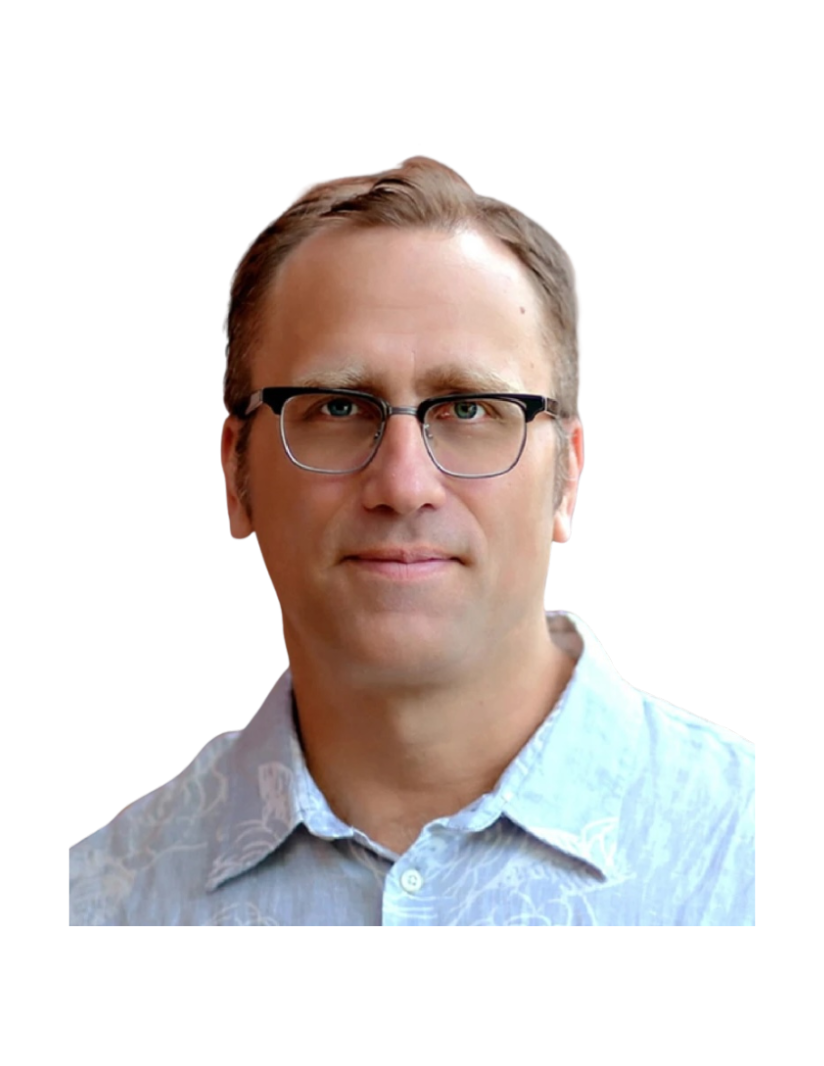
Mark Frein, COO at Oyster on Being a Multifunctional Executive and Harnessing Pattern Recognition in Leadership Roles
Episode 3
Mark Frein
-

Mauro Porcini, CDO at PepsiCo, Reveals the Traits Shaping the Unicorn Leadership Teams of the Future
Episode 2
Mauro Porcini
-

Joe Militello, Chief People Officer at Pagerduty: Why You Need to Rethink Your People Strategy
Episode 188
Joe Militello
Fellow Newsletter
Get exclusive interviews and leadership best practices directly into your inbox.
Wait! Before you go!
You might also be interested in these podcasts
-
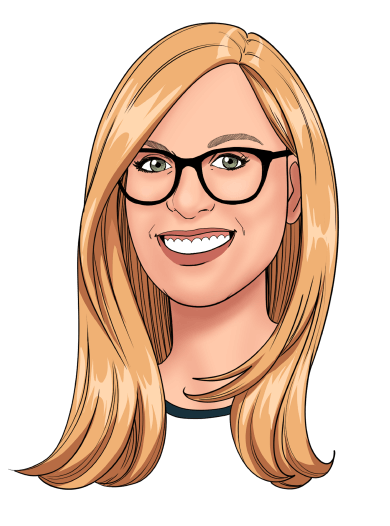
Episode 9
How to Coach Your Team to Success
Lara Hogan
Co-Founder at Wherewithall
-
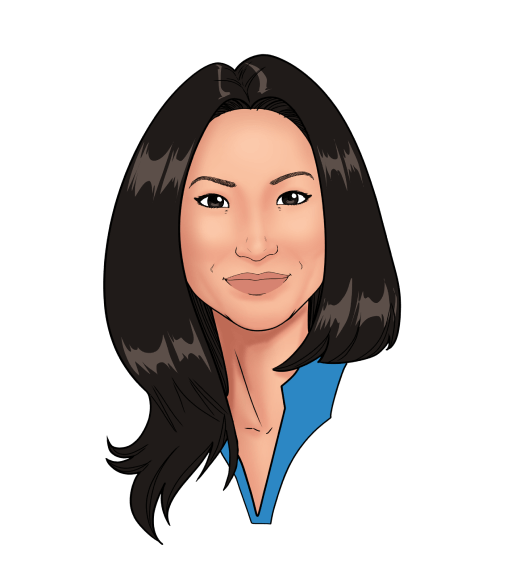
Episode 43
Psychologically Safe Teams: How to Individualize Your Approach and Lead Through Strengths
Alice Ko
Director of Marketing Communications at Procurify
-
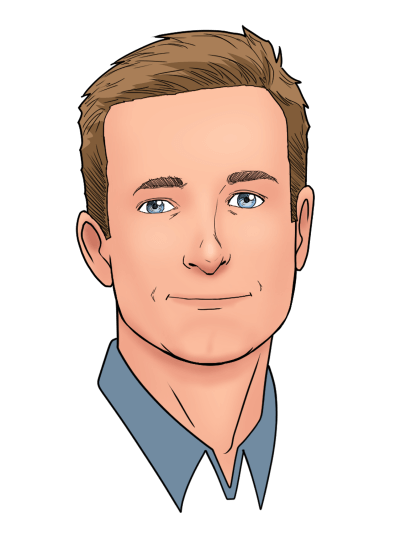
Episode 31
Saying Yes to Innovation: Lessons on Storytelling, Optimism, and Change
John Weigelt
National Technology Officer at Microsoft Canada
-
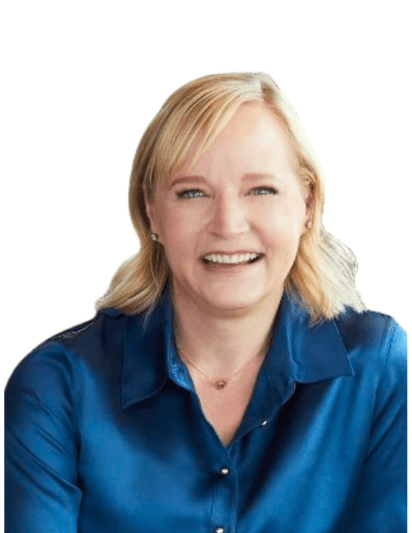
Episode 107
Reaching a Constant State of Improvement: How to Build Confidence Within Yourself & Your Team
Carly Brantz
Chief Marketing Officer at DigitalOcean
-

Episode 159
Step Into Your Story: Embracing Discomfort and the ‘Hell Yes’ Principle
Erik Qualman
Author of The Focus Project
-

Episode 171
Taking Workplace Habits Home: Leadership Lessons for Life
Chester Elton
Author and Keynote Speaker
-
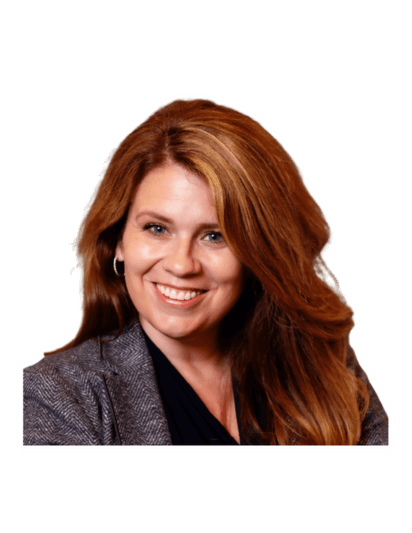
Episode 176
Assessing for Fit, Onboarding for Impact: Transform New Hires into Revenue Drivers
Maranda Dziekonski
SVP of Customer Success at Datasembly
-

Episode 139
Climbing New Heights With Value-Based Leadership: The Highs and Lows of Building and Scaling a Business
Felicia Bochicchio
CEO of Unbounce
-
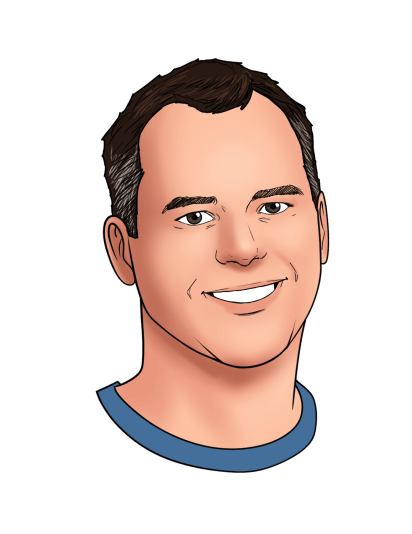
Episode 15
Building a Connected Network of Brains
Jean-Michel Lemieux
CTO at Shopify